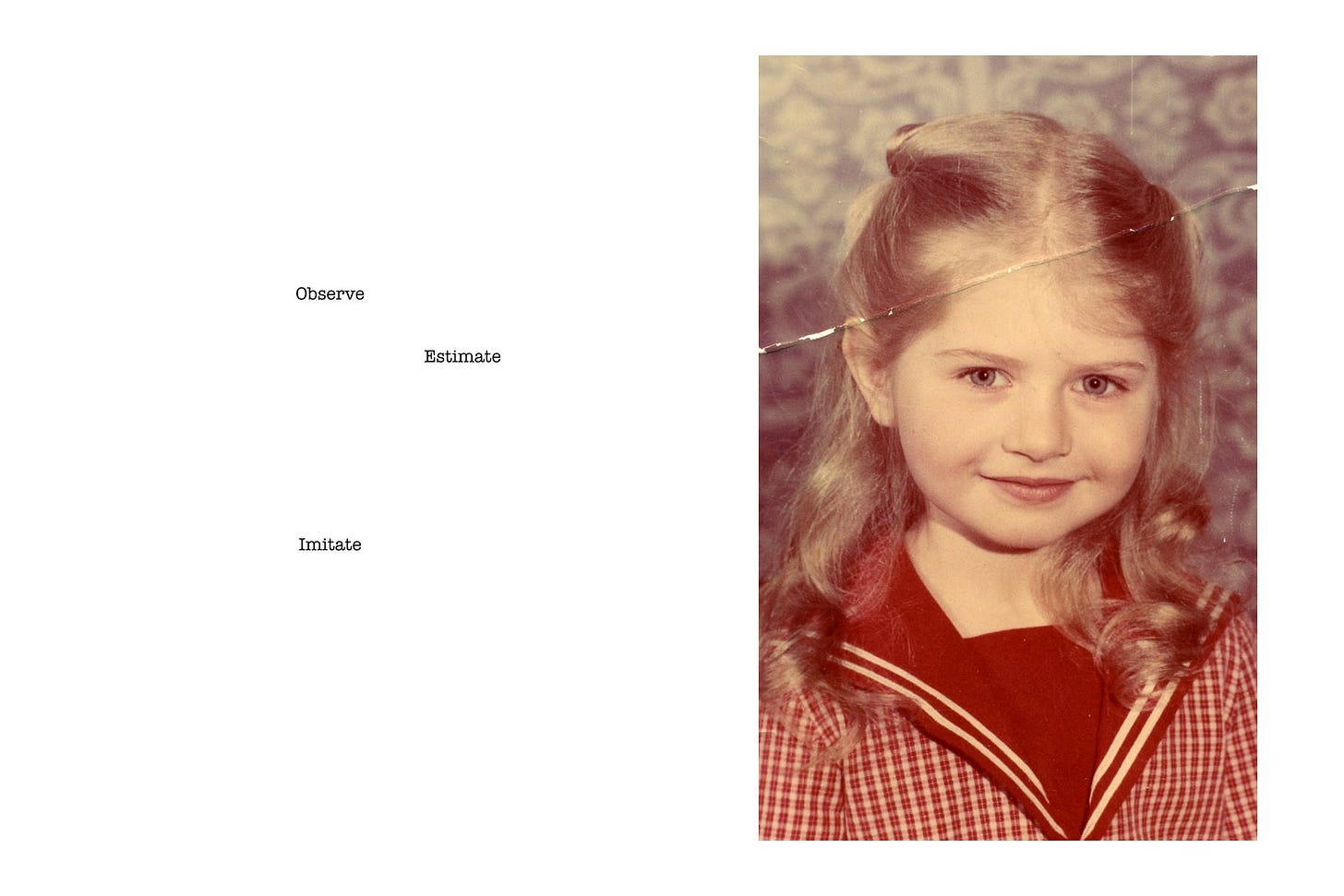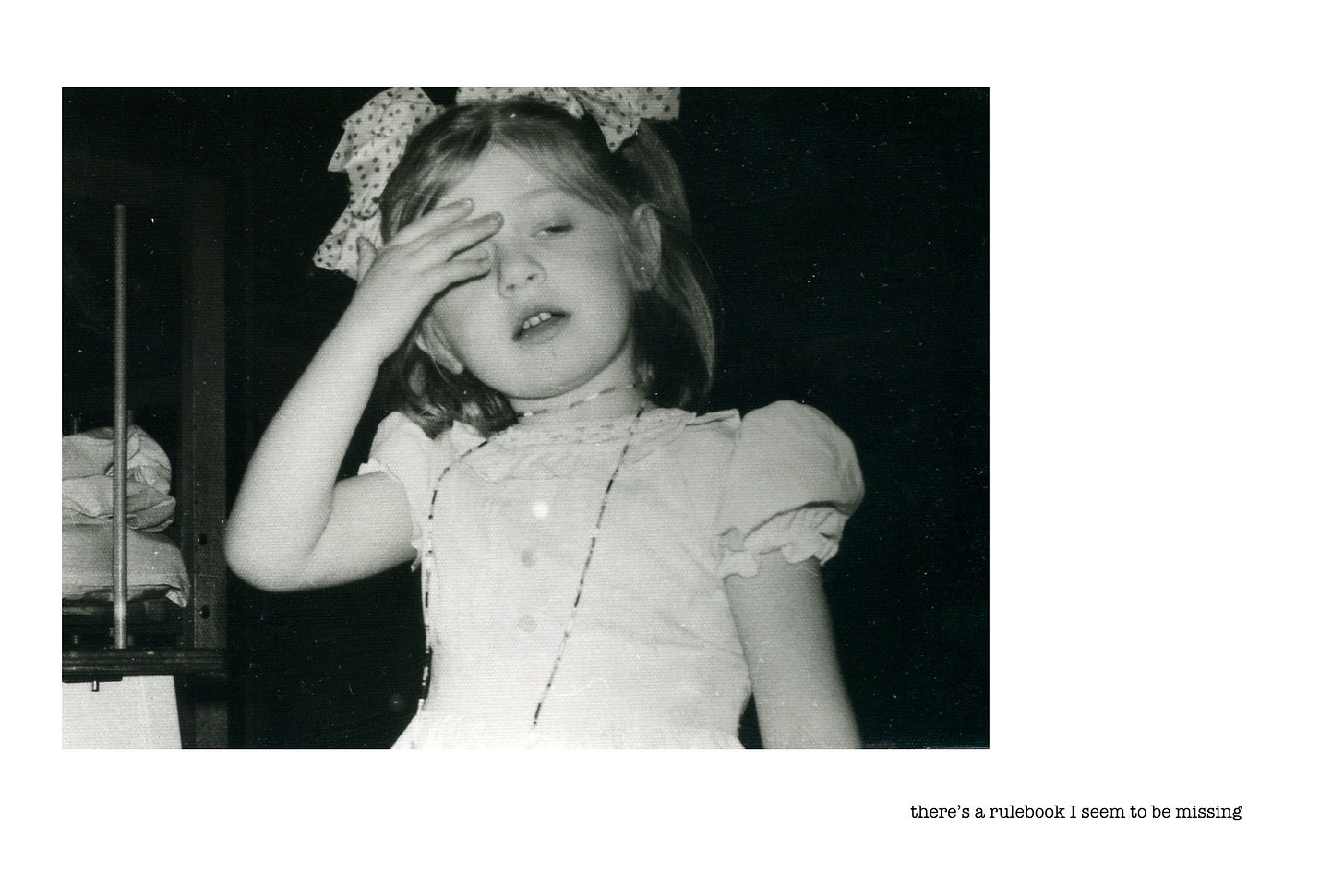On unmasking
Embracing neurodivergence at 42
During the first year of the pandemic, I remember telling a friend how much I was enjoying staying home and not having to go anywhere or do anything. It felt like a weight had been lifted off my shoulders. My friend didn't understand: “But you can always just choose to stay home rather than being forced to do so?”.
But for me the sense of relief was in the fact that everyone was doing the same thing, and I was finding odd comfort in it, not having to find an excuse or explanation for wanting to opt out of certain social expectations and interactions, and not feeling constantly exhausted from forcing myself to.
Now, looking back, I can see that this was the start of autistic unmasking for me. Just like how many women found it difficult to put their bras back on after not wearing them for two years, I’m finding it near impossible to put my neurotypical mask back on.
“Observe, Estimate, Imitate”, from (Un)masking, 2022-ongoing
Discovering that you're neurodivergent later in life can be challenging, but it can also lead to a newfound sense of understanding and acceptance of yourself. For many women, the diagnosis - of self-diagnosis, which is just as valid - of autism and/or ADHD can come as a relief and validation, explaining why they have struggled with social interactions, sensory sensitivities, executive functioning and emotional regulation.
I am certainly viewing many of my past experiences through a new lens, and it’s comforting to know that I struggle with certain things not because I’m lazy or broken or not trying hard enough - but because my brain is simply wired differently and doesn’t fit into a world designed for and by the neurotypicals. It’s like a missing piece of the puzzle has finally been found - actually, no, it’s like you’ve realised that you’ve been trying to assemble the wrong puzzle altogether, and with the wrong set of tools to boot.
Unfortunately, the majority of autistic women are undiagnosed or misdiagnosed, with estimates suggesting that up to 80% of autistic women go unrecognised. This is due in part to the fact that autism is - still! - often thought of as a male condition, with diagnostic criteria based on male experiences and behaviours. Women and girls often present very differently, with subtler symptoms that are often overlooked or attributed to other conditions such as anxiety or depression. Women and girls are also experts at masking, picking up on social clues better and becoming much better at blending in.
“Awkward, Unfiltered”, from (Un)masking, 2022-ongoing
The lockdowns and social distancing measures of the past couple of years have led to an increase in self-discovery for many women. With more time alone and fewer social pressures, we have started unmasking, embracing the unique ways our mind works, and connected with communities and autism self-advocates online. For me, reading about other people’s first-hand experiences of neurodivergence led to a series of “aha!” moments, and as I laughed at executive dysfunction memes that described my experiences to a T, read memoirs of autistic women (Hannah Gadsby’s 10 Steps to Nanette and Katherine May’s Electricity of Every Living Thing, among others) I started connecting the dots.
Still, coming to terms with an autism or ADHD diagnosis (or self-diagnosis) can be a difficult process. When you masked and worked hard to fit in all your life, it is difficult to know where the mask ends and an authentic you begins. I’m still working on figuring that out. This is what my project (Un)masking is about, as I explore female neurodivergence through personal archive and text.
Even thought it’s difficult, I feel it’s important to share this part of my identity, and my journey towards figuring this all out. If nothing else, even if it helps one person to come to a similar realisation, it’s worth it.
After all, it’s exactly how it started for me - by a seemingly neurotypical friend sharing her realisations with me.





